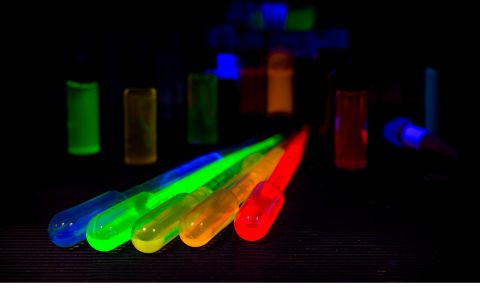"Insights into the History of Colloidal Quantum Dots – a European Perspective" by Prof Andrey Rogach | IAS STEM Graduate Colloquium

Join us in the IAS STEM Graduate Colloquium on 30 April 2024 (Tue), 2pm at SPMS LT2 by our distinguished speaker, Prof Andrey Rogach, Founding Director of the Centre for Functional Photonics & Yeung Kin Man Chair Professor of Photonics Materials , City University of Hong Kong
About the talk
The 2023 Nobel Prize in Chemistry was awarded to Moungi Bawendi, Louis Brus, and Alexei Ekimov, for the discovery and synthesis of quantum dots (QDs). According to Brus, “This was a collaborative effort, it’s partly physics, partly chemistry and partly material science”.
Since their discovery in the early 1980s, QDs remain a paradigmatic example of the size-dependent properties characteristic of nanoscale materials, and served as a workhorse to promote research and development in the field. Their unique electronic and optical properties can be exquisitely tuned by controlling particle size, setting a high standard for nanomaterial tunability and control.
A comprehensive review by Efros and Brus in ACS Nano traces the QDs evolution, from their inception in glasses to their advancement through colloid science-based wet-chemistry methods, and their applications in many fields, ranging from fluorescent bioimaging to light emitting diodes, solar cells, and QD TVs. In this talk, I will offer personal insights into the earlier developments of QDs, from a perspective of a scientist who entered this field in Europe in the mid-1990s.
Our Distinguished Speaker
Co-Organisers
IAS@NTU and the Graduate Students' Clubs of EEE, MSE and SPMS.
